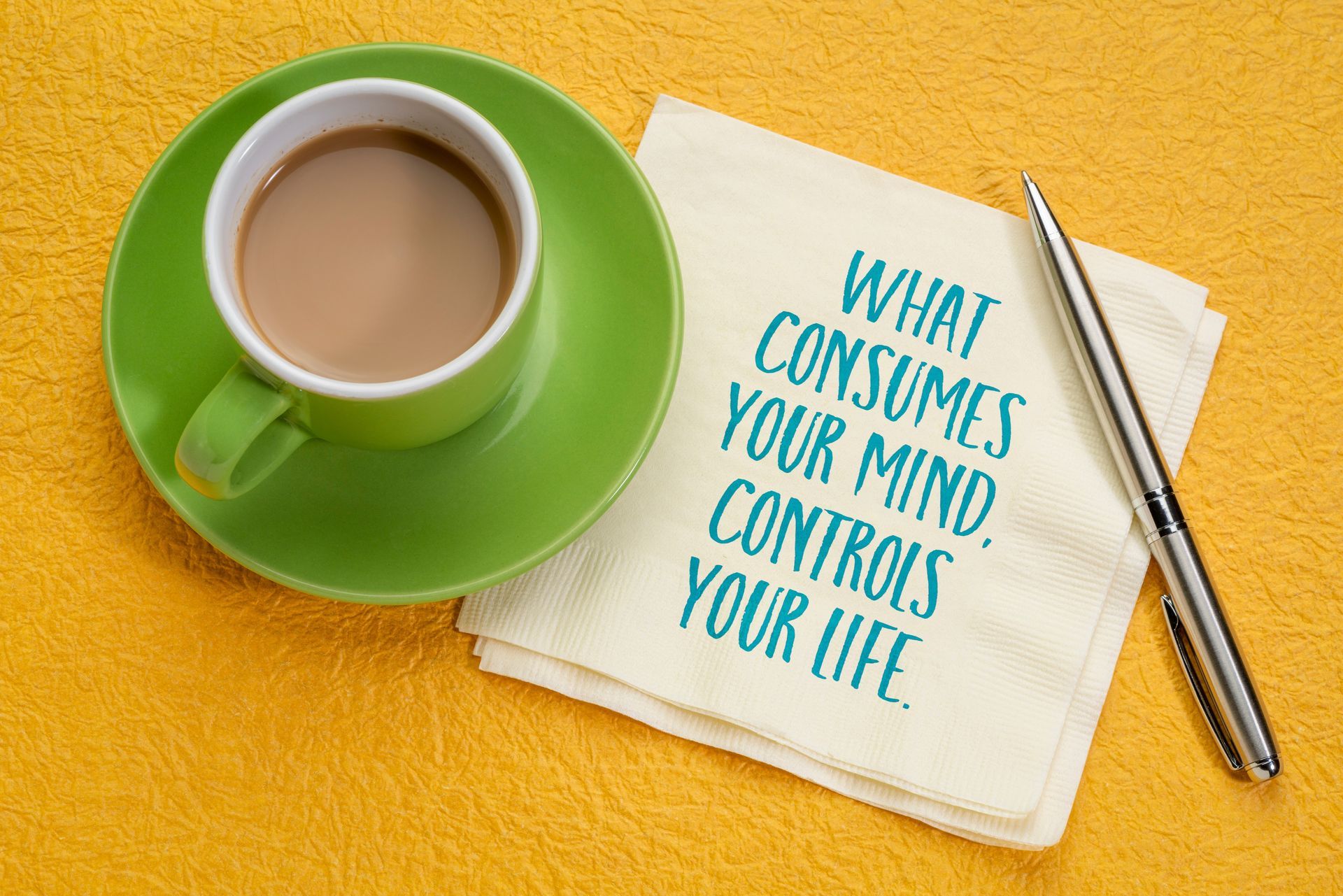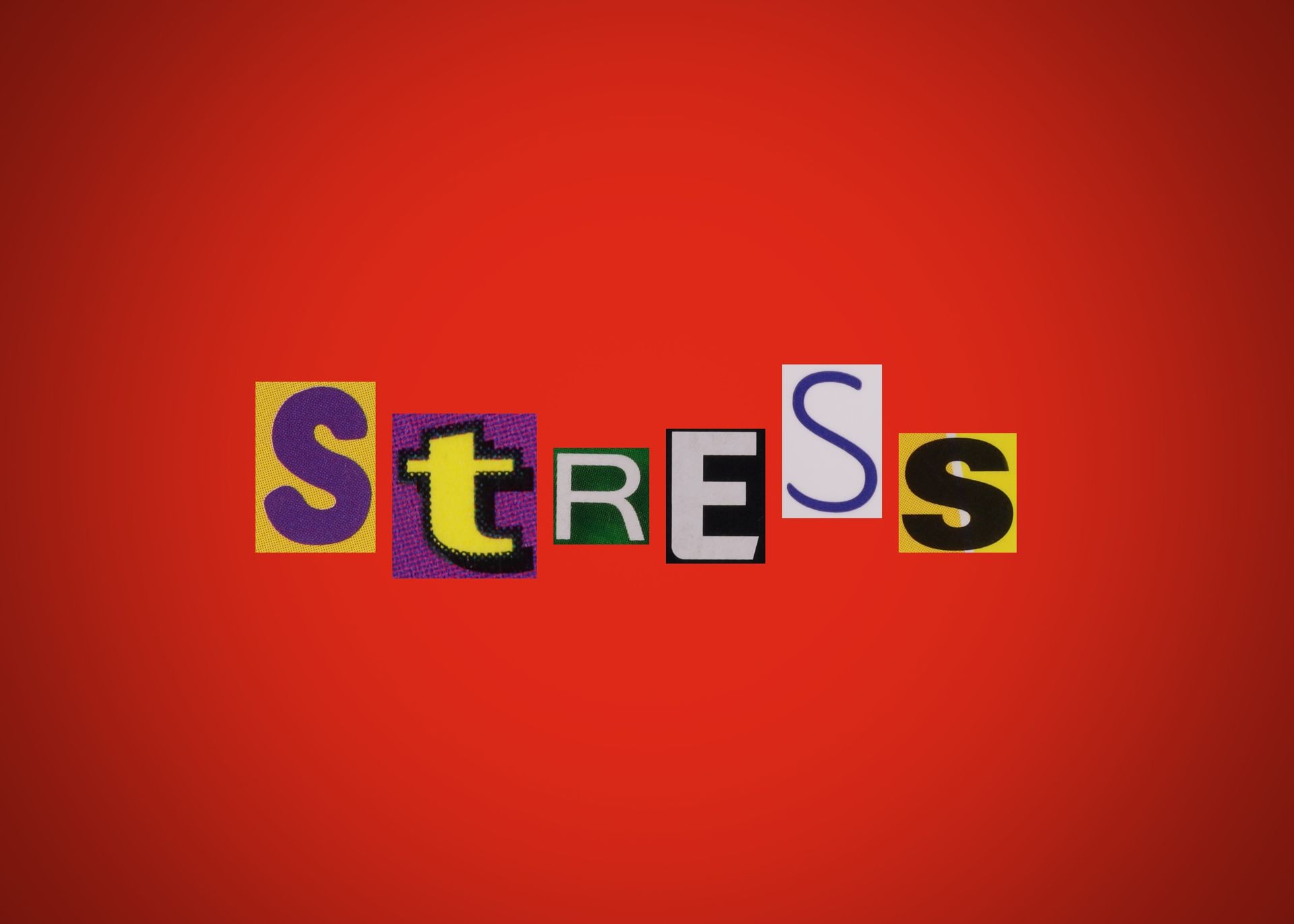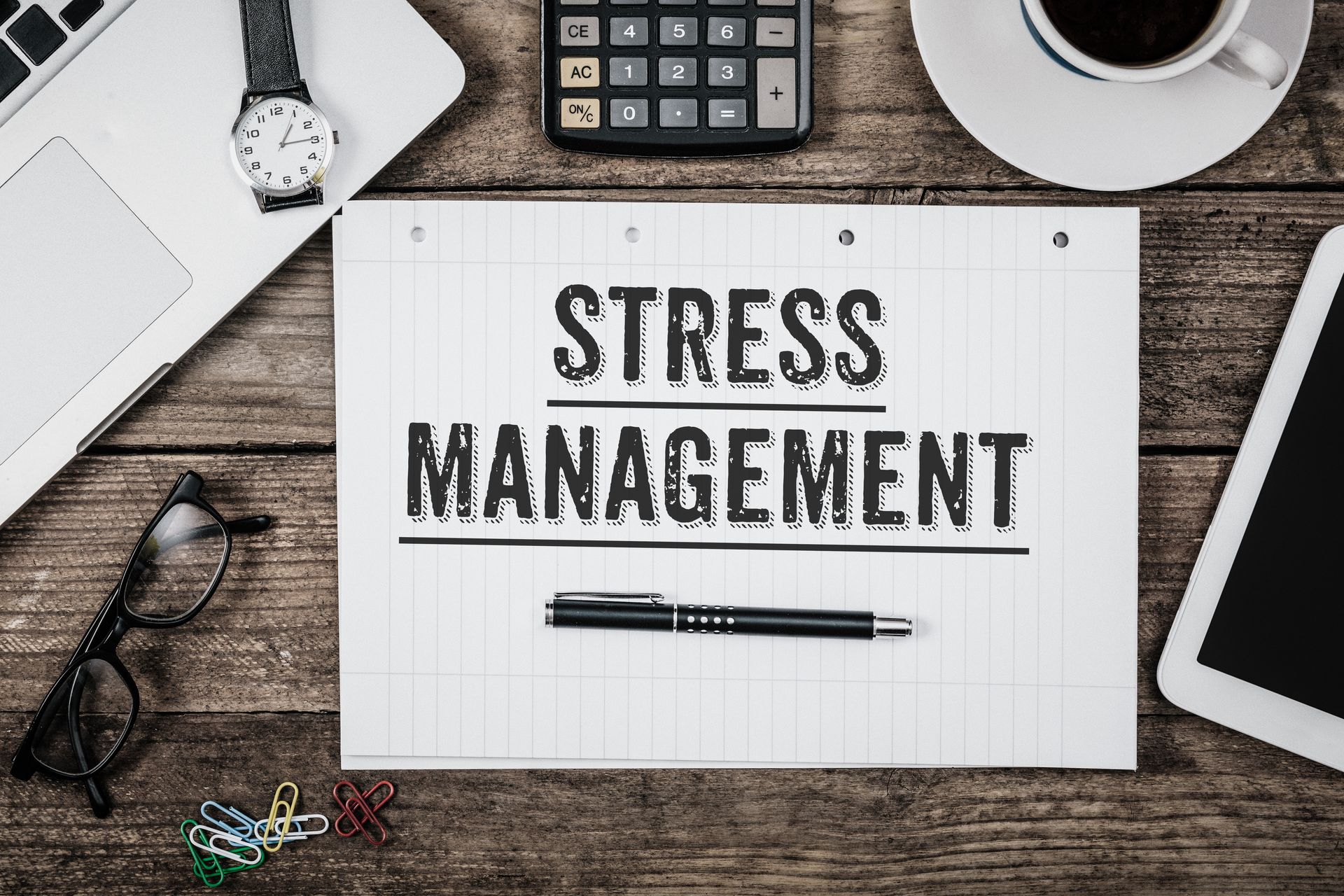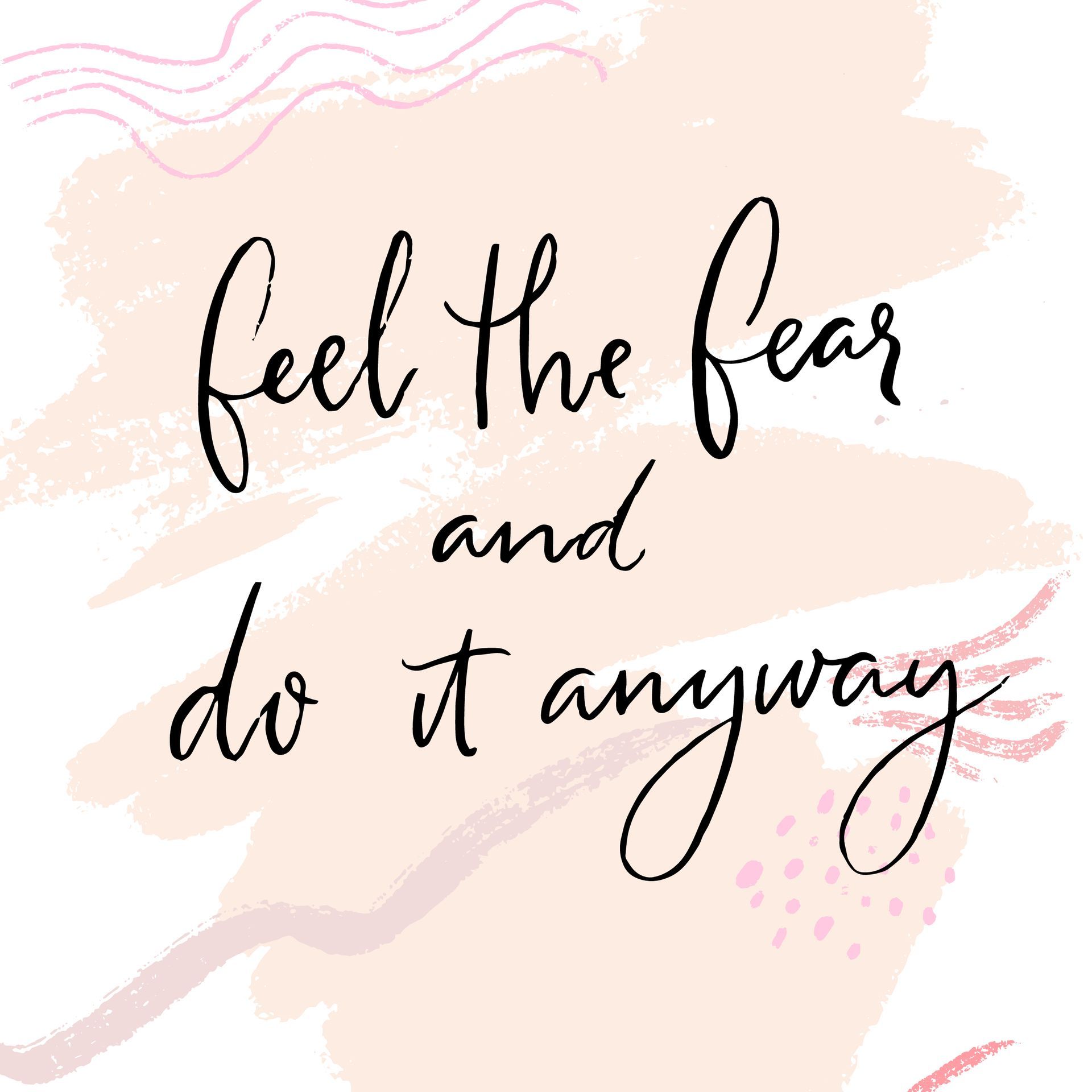by Angela Faita
•
19 December 2024
Why We Break Promises to Ourselves and How to Stop the Cycle? Every year, as the calendar turns to January 1st, lot of people make promises to themselves. They decide this will be the year they start eating healthier, exercising regularly, starting that business, or finally putting themselves first. The excitement is high, the goals are set, and the commitment feels unshakable. But by the end of January, many of those promises are already broken . Sound familiar? Why does this happen? Why do we set out with such determination, only to quit so quickly? The answer lies in what I call unconscious coping mechanisms. For the sake of simplicity, I will also refer to them as buffering in this blog. Buffering is what we do when something triggers us—when we feel uncomfortable emotions, stress, or overwhelm. These feelings can be so unfamiliar or unpleasant that, instead of sitting with them and processing them, we unconsciously escape into automatic responses. Buffering can look like overeating, scrolling endlessly through social media, binge-watching Netflix, procrastinating, overspending, or avoiding conversations and tasks we promised to tackle. It’s a temporary escape from discomfort—but it comes at a cost. The Problem with Buffering Buffering happens because we haven’t learned how to process uncomfortable feelings. As children, we were rarely taught that it’s okay to feel sad, bored, stressed, or afraid. Instead, many of us were conditioned to avoid or distract ourselves from those emotions. Over time, this pattern became an automatic response. Here’s what buffering looks like in everyday life: You feel anxious , so you open the fridge and grab a snack. You’re overwhelmed by a project, so you scroll through Instagram instead. You’re scared to take the next step in your business, so you binge-watch a TV series. You’re disappointed with something in your life, so you pour yourself another glass of wine. At the moment, buffering feels like a relief—but in the long run, it creates more problems. The snack becomes weight gain, the scrolling becomes wasted time, and the wine becomes a reliance on alcohol to cope. These unconscious coping mechanisms destroy our trust in ourselves because every time we buffer, we’re breaking a promise we made to ourselves. Why This Affects Your Self-Trust When you say, “This year I’m going to stick to my diet,” and then you don’t—you weaken your self-trust. When you promise, “I’ll work out three times a week,” and skip those workouts, you teach yourself that your word doesn’t mean much. Over time, this creates a disconnect between you and you . You stop believing in yourself. You begin to doubt your ability to commit and follow through. That doubt creates confusion, self-judgment, and even more inaction—which, in turn, leads to more buffering. It becomes a cycle of making promises, breaking them, and losing confidence in your ability to achieve your goals. Imagine what it would feel like to follow through on every commitment you made to yourself. Imagine: Sticking to your meal plan , even when you crave something else. Showing up to every workout you scheduled. Finishing the project you’ve been putting off. Taking action , even when you feel scared or unsure. What would that relationship with yourself look like? How much stronger would your self-trust and self-confidence be? The truth is, buffering—or unconscious coping—is a form of self-sabotage. It keeps us stuck, erodes our progress, and prevents us from becoming the person we want to be. Common Ways We Buffer Here are some of the most common unconscious coping mechanisms people use to avoid uncomfortable emotions: Distraction : Filling your time with busyness—scrolling, cleaning, taking on new projects—to avoid feeling what’s really going on inside. Numbing : This often involves overdoing activities the moment discomfort arises. Common methods of numbing include drinking, eating, overworking, spending money, binge-watching TV, using drugs, scrolling through social media, internet surfing, or even over-exercising. Instead of sitting with and processing uncomfortable emotions, we turn to these distractions to escape the discomfort. Pushing Through (Being “Strong”) : Denying or ignoring your emotions entirely, convincing yourself that feeling nothing is a sign of strength. The Pep Talk : Trying to immediately mask your emotions with positive affirmations instead of first processing the truth of how you feel. Spiritual Bypassing : Jumping straight to “there’s a lesson in this” without acknowledging the real pain or struggle you’re experiencing. These mechanisms may provide short-term relief, but they come at the cost of long-term growth, trust, and fulfillment. The Solution: How to Break the Buffering Cycle So, how do we stop buffering and start keeping promises to ourselves? 1. Learn to Manage Urges The first step is learning to allow the urges without reacting to them. When you feel the pull to buffer (eat, scroll, procrastinate), pause. Take a deep breath, acknowledge the discomfort, and ask yourself: What am I really feeling right now? Instead of escaping, get curious. Let the feeling be there. Remind yourself that uncomfortable emotions won’t harm you—they’re simply signals. When you allow urges without acting on them, you take back control of your actions. 2. Make Decisions Ahead of Time The second step is to make decisions in advance and commit to following through, no matter what. For example: Plan your meals for the week and decide you’ll stick to them. Schedule your workouts in your calendar and treat them like important appointments. Block out time to work on your goals and commit to showing up, even when it’s hard. When you make decisions ahead of time, you’re acting from your higher self who wants the best for you—not from the version of you who buffers in the moment. 3. Build Trust with Yourself Every time you keep a promise to yourself—no matter how small—you build trust. You show yourself that you can rely on you. Over time, this trust becomes unshakable. You stop breaking commitments and start achieving your goals because you know you’ll follow through. Imagine how proud your future self will be when you stick to the plan you created. By managing your emotions, allowing discomfort, and honoring your commitments, you create a version of yourself who doesn’t quit—who grows, achieves, and thrives. Final Thoughts Breaking promises to ourselves isn’t a reflection of weakness or failure. It’s simply the result of unconscious coping mechanisms we’ve developed over time. The good news? You have the power to change this pattern. When you allow yourself to feel, when you manage urges, and when you make decisions ahead of time, you break free from buffering. You build self-trust. You follow through. And you create a life you’re proud of—one small promise at a time. The next time you feel the urge to buffer, pause. Acknowledge the discomfort. And remind yourself: I can handle this. Because you can. And your future self is counting on you .






